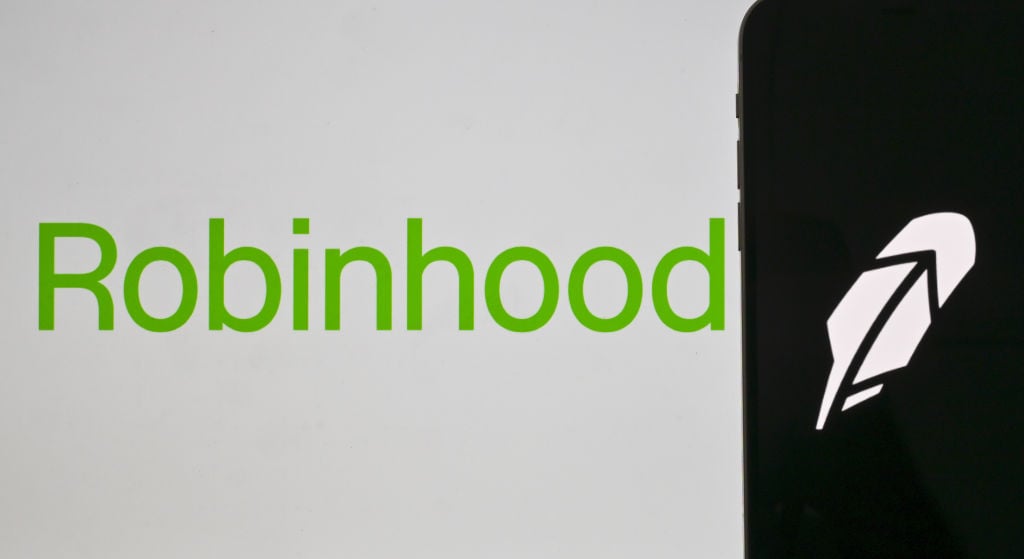You don't need a lot of money to invest, especially now that so many brokers offer commission-free stock trading and no account minimums. If you have $1,000 saved, you could start to build a portfolio with a few high-quality companies.
Here are three strong businesses with plenty of growth potential you might want to add to your portfolio.

Image source: Getty Images.
1. Nvidia: A leader in AI
Artificial intelligence (AI) is one of the most important technological developments in decades. Few AI companies have been as successful as Nvidia (NVDA +1.60%), which develops the graphics processing units (GPUs) that provide the specific type of processing power that advanced AI applications need most.
Since the AI boom began, Nvidia has consistently delivered fantastic financial results. In its fiscal 2026 first quarter, which ended April 27, it reported $44.1 billion in revenue, up 12% from the previous quarter and 69% year over year. It was the company's ninth consecutive quarter of revenue growth. Most of that revenue came from its data center segment, as tech companies have continued to purchase large numbers of Nvidia's GPUs for their data centers.

NASDAQ: NVDA
Key Data Points
Nvidia also has a wide competitive moat, as its GPUs are by far the most popular ones available. It has a 92% share of the GPU market, leaving rival chipmakers like AMD and Intel far behind.
The main arguments against investing in Nvidia now are that it's overvalued after its explosive growth, and that demand for its GPUs could plateau. As far as the valuation is concerned, Nvidia is trading at a forward P/E ratio of 33.6 at the time of this writing, a reasonable price for a leading tech stock. And while Nvidia won't maintain its 92% market share in data center GPUs, the quality of its hardware (and software) should help it maintain a strong customer base.
2. SoFi: A modern, user-friendly financial platform
SoFi (SOFI 0.92%) is an online-only bank that aims to meet all the financial services needs of the average retail customer. It offers bank accounts, credit cards, loans, insurance, and an investing platform. If you want a one-stop shop to help you manage every aspect of your finances, SoFi fits the bill.
There are a few reasons SoFi stands out in a crowded field of bank stocks. All its financial products get high marks and seem to be well-liked by customers. Its banking, investment, and personal loan products all scored well with Motley Fool Money, The Motley Fool's personal finance brand.

NASDAQ: SOFI
Key Data Points
SoFi also has some unusual offerings, particularly among its investment products. For example, it enables customers to invest in initial public offerings before they begin to trade on public stock exchanges. It also has alternative investment funds for customers who want to invest in commodities, venture capital, real estate, and other alternative assets.
SoFi's stock price has been up and down since it went public in 2021, but if its first-quarter results are any indication, 2025 could be a big year for the bank. The company set new records on net revenue ($772 million, up 20% year over year), new members (it added 800,000, bringing its total to 10.9 million), and product additions (1.2 million, bringing its total to 15.9 million).
Even with that growth, SoFi is still a long way from competing on the same level as the major nationwide banks. It's currently the 60th largest bank in the U.S., according to the Federal Reserve. There's also the possibility that macroeconomic uncertainty could hurt SoFi's business. But if you're willing to hold on through potential volatility, SoFi stock could be a long-term winner.
3. AppLovin: A fast-growing adtech platform
Mobile apps have become an everyday part of most people's lives, and mobile ad spending is projected to reach $228 billion this year. Adtech company AppLovin (APP +0.37%) helps developers connect to new audiences and monetize their apps through mobile ads.

NASDAQ: APP
Key Data Points
Unlike many marketing platforms, AppLovin has a performance-based business model. Its revenue is based on engagement as measured by third-party attribution, as opposed to fixed prices per click or per impression. AppLovin has also gone all-in on AI with the development of Axon, its AI-powered advertising engine that aims to help advertisers get the most engagement out of their marketing dollars.
Performance analysis indicates that AppLovin delivers on that goal. Data from the marketing specialists at Northbeam found that AppLovin's average return on ad spend was 45% higher than Meta Platforms' and 74% higher than secondary platforms, including TikTok, Snapchat, YouTube, and Pinterest. That data came specifically from October and November 2024, so it's hardly an exhaustive analysis, but it's still a promising result.
AppLovin's financial growth is also promising. Revenue in the first quarter rose 40% year over year to $1.5 billion. Net income increased by 144% to $576 million. Both metrics have generally been on the rise over the last three years.
APP Revenue (Quarterly) data by YCharts.
I'd consider AppLovin the riskiest of these three stocks, and it's the most expensive based on its price-to-earnings ratio. For those who don't mind a bit of risk in their portfolios, however, AppLovin's AI tools and effectiveness as an ad platform give it terrific upside potential.






